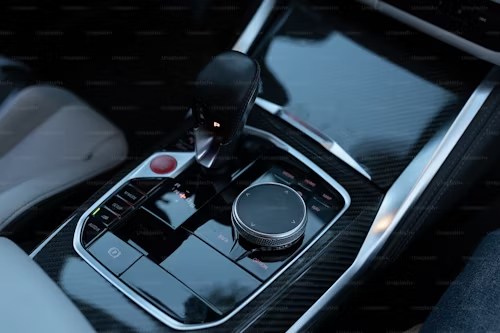Driving Towards a Greener Future: The Rise of Smart Car Sustainability and Engineering

The automotive industry is at a pivotal crossroads, with sustainability and innovation leading the charge towards a cleaner, smarter future. As global awareness of environmental issues grows, so too does the demand for zero-emissions transportation and future-proof vehicles. This blog post explores the exciting world of smart car sustainability and engineering, discussing how custom smart cars are shaping the future of travel.
Understanding Smart Car Sustainability
The concept of 'Smart car sustainability' revolves around designing vehicles that are not only efficient and safe but also environmentally friendly. Smart cars embrace advanced technologies to reduce their ecological footprint, offering a promising solution to urban pollution and the depletion of natural resources. But what exactly makes these vehicles sustainable?
- Zero-Emissions Technology: Many smart cars operate on electric power, significantly reducing or eliminating the emission of harmful pollutants.
- Efficient Use of Resources: Smart manufacturing processes aim to minimize waste and promote the recycling of materials, contributing to a more sustainable lifecycle for each vehicle.
- Integration with Smart Cities: Smart cars are designed to function seamlessly within smart cities, using IoT connectivity to optimize routes and reduce traffic congestion, thereby lowering overall emissions.
Through these features, smart cars not only contribute to cleaner air but also promote a more sustainable urban infrastructure.
Advancements in Smart Car Engineering
'Smart car engineering' is a multidisciplinary field combining mechanical, electrical, and software engineering to develop vehicles that can anticipate and respond to an ever-changing environment. The cutting-edge technologies employed in smart car design are what set these vehicles apart, making them highly adaptable and future-ready.
- Autonomous Driving Systems: These systems use sensors and AI to navigate roads with little or no human intervention, which can lead to safer and more efficient driving.
- Energy Efficiency: From regenerative braking systems that recapture energy to advanced battery technologies, smart cars are engineered to maximize their range while minimizing energy consumption.
- User-Centric Design: Smart car engineering places a strong emphasis on the user experience, incorporating features like predictive maintenance, which uses data analytics to foresee and prevent potential issues before they occur.
These innovations are not just enhancing the performance and safety of automobiles but are also pivotal in the push towards sustainable transportation solutions.
The Concept of Future-Proof Cars
As the name suggests, 'Future-proof cars' are designed to remain relevant, functional, and valuable over a long period, despite changes in technology and consumer preferences. This idea is crucial in a world where technological obsolescence can render products outdated shortly after they are launched.
To achieve this, car manufacturers focus on adaptability and modularity. The ability to update software remotely, for example, allows a vehicle to continually improve without the need for physical modifications. Similarly, platforms that can accommodate different powertrain technologies (like electric, hybrid, or hydrogen fuel cells) ensure that cars can evolve as advancements in energy sources emerge.
Future-proofing also involves incorporating adaptable user interfaces that can receive and integrate new functions and apps, keeping the in-car experience as current as possible without the need for expensive hardware upgrades.
Custom Smart Cars: Catering to Individual Needs
One of the most consumer-centric trends in the automotive industry is the rise of 'Custom smart cars'. These vehicles offer buyers the opportunity to tailor numerous aspects of their cars to fit personal preferences and lifestyles, which goes beyond choosing the color or trim.
- Software Customization: Drivers can choose the software features they want, from the level of autonomous driving capability to entertainment and interior environment controls.
- Hardware Upgrades: Beyond aesthetic modifications, hardware elements such as battery capacity or sensor packages can be customized to enhance performance or functionality.
- Integration with Personal Devices: Custom smart cars can seamlessly connect with a user’s personal devices and home systems, offering a level of integration that promotes a holistic approach to the smart lifestyle.
This level of customization not only improves the driving experience but also ensures that the vehicle can adapt to changing personal circumstances or technological advancements.
Advancing Zero-Emissions Transportation
Central to the discussion of smart car sustainability is the topic of 'Zero-emissions transportation'. This refers to vehicles that release no exhaust gases that pollute the air, thus having a minimal environmental impact. The shift towards electric vehicles (EVs) is a significant step in this direction, supported by advancements in battery technology and renewable energy sources.
Further developments include the exploration of alternative fuels like hydrogen and the creation of more efficient public transport solutions, which collectively contribute to a robust, sustainable transport network. The move towards zero emissions is essential not just for reducing global warming but also for improving air quality in urban environments.
In conclusion, the integration of advanced technologies and innovative engineering solutions in smart cars is setting new standards for sustainability in the automotive industry. By embracing customizations, future-proof designs, and zero-emission technologies, smart cars are not just transforming how we drive but also how we live, promising a cleaner, more sustainable future for all.




